Keeping you informed
Newsletter March 2023
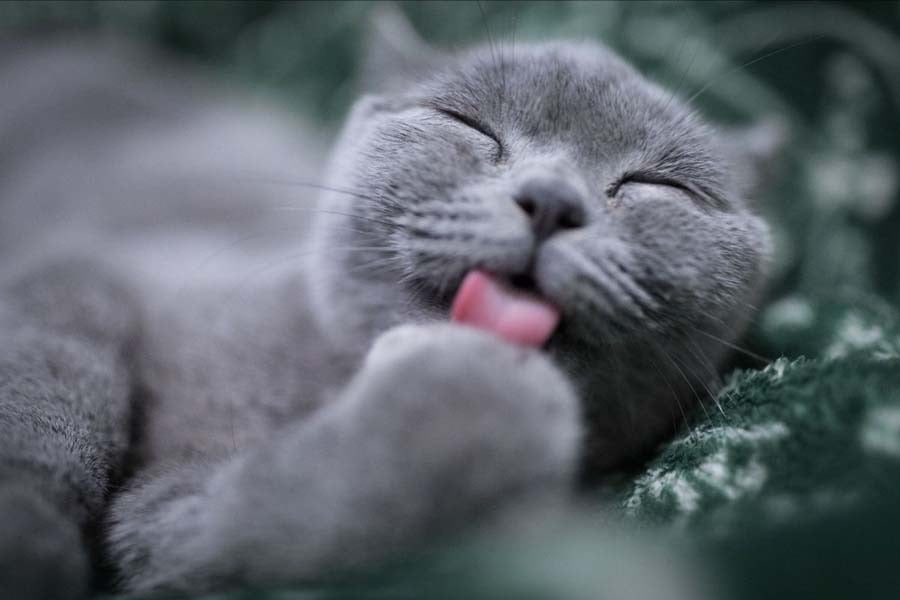
World Wildlife Day!
Celebrated on Friday March 3rd, World Wildlife Day is a United Nations international celebration of all the world’s wild animals and plants. In Australia, we are blessed with an incredible variety of native species that deserve conservation and celebration.
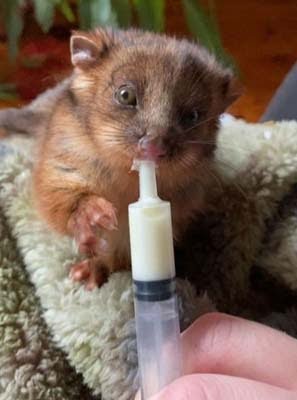
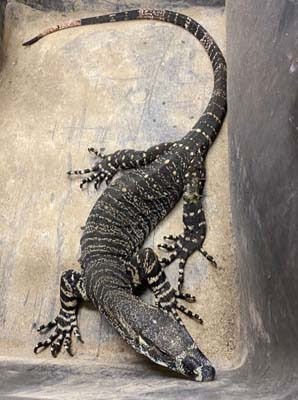
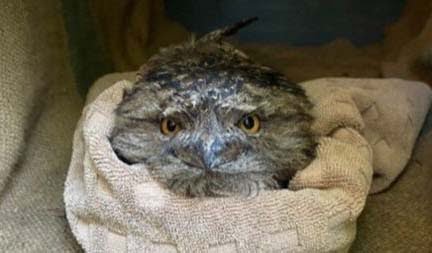
Shown above Tawny Frogmouth (Bottom), Lace Monitor (Right), Ringtail Possum (Left)) are just a few of the eclectic native species we see at the clinic!
Turramurra Veterinary Hospital is proud to do our part in preserving these fascinating species by providing medical attention to any native wildlife that is brought through our doors at no charge.
If you notice sick or injured wildlife in your area and are unsure how to proceed, you can contact Sydney Wildlife (ph 9413 4300) or WIRES (ph 1300 094 737) or go to their website for species specific advice. As always, Turramurra Veterinary Hospital is also available, just contact our friendly reception staff for advice!
Online Bookings
For ease and convenience Turramurra Veterinary Hospital has an online booking system, which allows clients to always make bookings during the day and night. Follow the link below to book online for your pet’s next appointment:
https://www.turramurravet.com.au/book-appt/
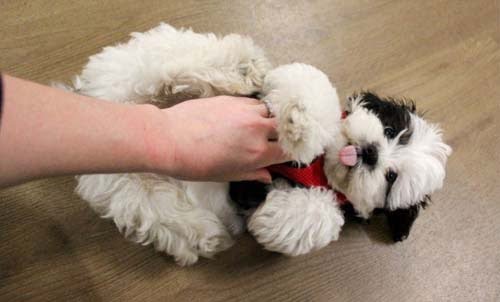
Congratulations lovely Luna!
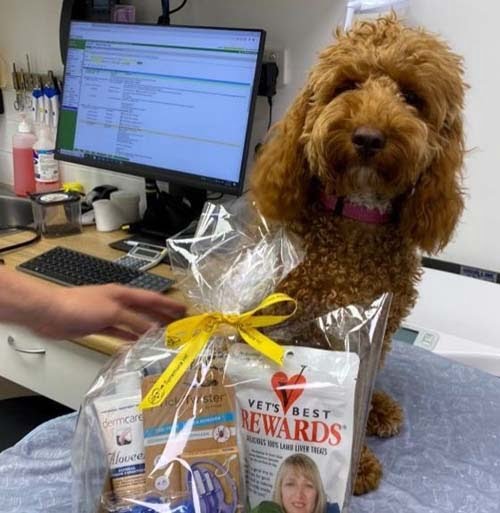
Luna was lucky enough to win a Turramurra Veterinary Hospital hamper after her family signed up for our newsletter! Feel free to forward the link to friends and family if they would like to sign up for our newsletter too:
https://www.turramurravet.com.au/newsletter-subscribe/
Is your pet protected from deadly paralysis ticks?
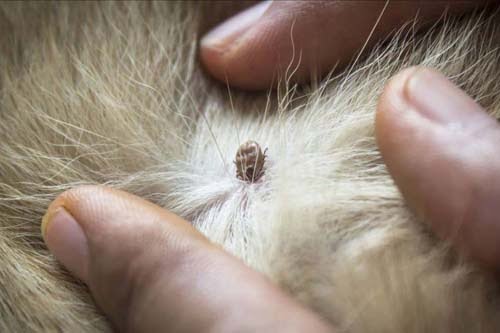
Australian paralysis ticks are far more toxic than ticks in the UK, South Africa or the United States. It is vital that dogs and cats are treated with appropriate preventatives to safeguard them from paralysis ticks. Remember, when it comes to parasites, all-year-round prevention is the best medicine!
Knowing the early signs of tick toxicity could save your pets’ life!
Signs of tick toxicity can be any of the following:
- Vomiting or retching (mainly dogs)
- Change in the sound of your dog’s bark or your cat’s meow (vocal chord paralysis)
- Uncoordinated back legs or wobbly gait progressing to paralysis of all limbs
- Difficulty breathing progressing to respiratory failure and death
Signs of tick toxicity usually occur within 3 days of tick attachment. One tick can kill a pet.
If you find a tick on your pet, or noticed any of the above signs, contact our friendly Customer Care Team to book a veterinary consultation as soon as possible.
Dog Training Workshops!
Paws to the floor!
Does your dog jump up when saying hello? Teach your dog to keep their paws to the floor!
Date: Monday 1st May
Time: 6.30 – 7.30pm
Cost: $79 per dog
Other workshops available include Walk this Way and Total Recall:
Does your dog pull on their lead? Or have selective hearing when at the dog park?
Call or email us now to join our waitlist!
These 1-hour training workshops specifically to target these common issues. Our workshops, ‘Walk this Way’, ‘Paws to the Floor’, and ‘Total Recall’, are perfect for creating handy habits to help solve these problems in a fun and inclusive environment!
Easter Holidays Kids Workshop

Clicks for Tricks!
Date: Friday 21st April
Time: 10 – 11am
Cost: $79 per dog
Does your child adore spending time with their dog? Or have they shown an interest in working with animals in the future?
Suitable for children aged 10 years and over, our holiday training workshop is tailored specifically for kids! This workshop will focus on games children can play with their family dog, including simple tricks and tips for dog training! Being a parent herself, Pet Behaviour Consultant, Katie Bedrossian, loves sharing her canine behaviour knowledge with children.
Hurry – only 6 spots available!
If any of these workshops interest you, please contact our Customer Care Team on 9988 0198 for priority bookings!
Note: all dogs attending workshops must be up to date with their vaccinations, flea and tick prevention, and worming treatments. Bookings are open to all young or adult sociable dogs.
Pet Of The Month: Eidie Worsley
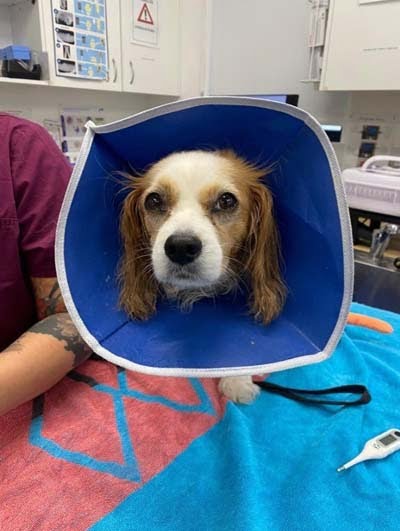
Eidie presented to Turramurra Veterinary Hospital with nasty diarrhoea, vomiting and a poor appetite earlier this month. She was very unwell but responded positively to treatment after spending five nights undergoing a series of medical treatments and diagnostic investigations, including intravenous fluid therapy, extensive blood and faecal testing, abdominal ultrasound, antibiotics and gastrointestinal tract protectants.
Eidie is a sweet and lovely girl who was a pleasure to have in our clinic! She has visited us for rechecks to track her progress and recovery, and we are so happy to see her home and improving with her family!
Yay! Let’s Go to the Vet! Creating Fear Free Veterinary Visits for your Dog or Cat
Author: Katie Bedrossian – Pet Behaviour Consultant
Our aim in veterinary care is to provide for your beloved pet’s health needs – including their mental health!
We want to ensure that your dog or cat enters the veterinary hospital feeling relaxed and maintains a positive outlook throughout their visit to our practice.
Read below for 5 key things you can start now for a fear free vet visit for your pet:
- Introduce mat training. Then ensure the mat comes with you for the vet visit (use it in the car, the waiting room, the exam room and on the table).
This is suitable for both dogs and cats.Mat training is associating positive experiences with a portable mat (not their bed). The mat should be easily rolled or folded and ideally non-slip. It is also about associating the mat with calm, relaxed behaviour such as sitting, lying down, standing quietly or settling.This is best done by having the mat out at home and utilising it for meal times (feed your pet on it), and training sessions. Give plenty of treats to your pet while on their mat!Rewarding your pet whenever they go on the mat voluntarily can help fast-track your progress.Avoid washing your pet’s mat prior to a scheduled vet visit. - To arrive with your pet stress free, focus on a positive travel experience. This involves getting your pet comfortable with their crate or car harness at home as well as within a moving car. We can do this by placing the crate in a main living area of the home with the door off. This gives them choice of entry/exit which reduces stress. They can also add their own scents. If you have already introduced mat training, you could place the mat in the crate. We can increase the positive association by feeding meals in the crate and putting items of value to your pet in the crate (toys, comfort items). As your pet becomes comfortable, we can start to close the door, gradually increasing time and giving treats, before placing the crate in the car while still and then when moving. Learn more about how to give bitter-tasting tablets to your dog
CLICK HERE for the full article on fear free visits!
Why is my dog an excessive paw licker?
Author: Dr Gretta Howard – Senior Veterinarian

Common causes of paw licking in dogs
Larval paralysis ticks
If your dog develops a sudden onset intense licking of their paws and potentially other parts of their body, your dog may have walked through a “tick nest” where large numbers (sometimes hundreds) of larval paralysis ticks jump on the dog, particularly on the lower limbs and underside of the dog as they are running through shrubs or long grass. This causes a sudden onset of intense irritation particularly on the feet and legs. The larval form of the paralysis tick can cause severe irritation and in some cases vomiting and paralysis (though usually not as severe as an adult paralysis tick), particularly if your dog is a puppy or small breed. Veterinary treatment involves reducing the irritation with corticosteroids and a topical Frontline spray to kill the ticks. Any remaining ticks will jump off your dog as soon as they have had a full meal (usually within 7 days).
Insect bite reaction
Dogs don’t wear shoes and while they might have tough foot pads, they are not tough enough to avoid an insect sting such as a bee if stepped on. Some dogs have a hypersensitivity reaction to insect stings and can go into anaphylactic shock, whereas others will carry their limb off the ground in pain and lick their affected paw until the sting settles down. Veterinary treatment involves removing the sting (if located), pain relief and sometimes an anti-histamine injection. Pets should be monitored for pale gums, weakness and collapse and if there is deterioration, emergency care such as adrenaline is required.
Find out the other causes of paw licking in dogs.
Staff Profile: Dr Amy Howe

1) What inspired you to become a veterinarian?
Like most, becoming a veterinarian was a dream since I was very young and something I never grew out of. We always had pets growing up, namely a hyperactive Jack Russell Terrier, called Daisy, who was in our family for 17 years, a lovely Labrador, Zach, who cemented my love for them as a breed, as well as numerous fish, and also wildlife I would rescue from the backyard.
Having family in South Africa, I had the privilege of visiting them over the years and seeing the magnificent African wildlife living in their natural habitat. Visiting Kruger National Park made me fall in love with the idea of being a vet, and maybe one day being able to work with these animals.
Although I now treat mostly cats and dogs, I am an avid lover of all animals and hope to instill this same passion for our furry friends in my young son too!
2) You have a particular interest in dental surgery, what drew you to pursuing pet dentistry as an interest?
I have grown to really enjoy dentistry during my career. Teeth tend to be hidden in our pets’ mouths, and they tend not to be something that we as owners regularly check. As one of the most common diseases affecting our pets, whether they be dogs, cats, rabbits, guinea pigs or rodents, dental disease can go unnoticed very easily. However, dental disease is treatable, and our pets can gain a vast improvement in their quality of life if their teeth aren’t hurting them! I enjoy being an advocate for pets so that they can live with a pain-free mouth, and seeing them become happier, healthier pets when dental disease is treated.
3) Tell us a little bit about your current pets!
I currently have two pets – Garry the Siamese Fighting Fish and Zoe the Spoodle!
Garry the fish is the newest addition to our family. He enjoys 10 gallons of water to himself, has the appetite of a Labrador and is often found sleeping (but appearing like he is dead), which is a little scary.
Zoe is 11 years old now, I have had her since she was a small 8-week-old puppy, who came into my first job as a new graduate with her breeder. She had a congenital heart abnormality that required surgery, so I took her on, we fixed her heart, and she has been going strong ever since. She is slightly neurotic, prefers being at home and doesn’t like the postman!
Help! My Cat Keeps Missing the Litter Tray!
Author: Dr Gretta Howard – Senior Veterinarian
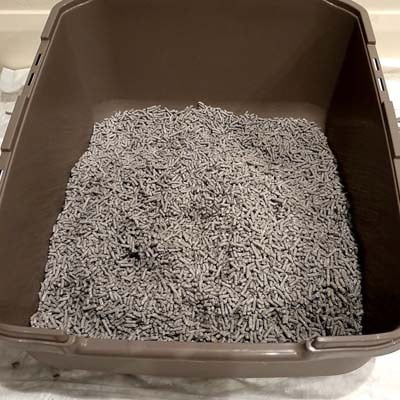 Cats usually have a pretty accurate aim, managing to urinate and defecate within the boundaries of their litter tray….but not always! In fact, I faced this very scenario when my own elderly 18 year old cat (Neechee) started missing her litter tray and urinating just next to it.
Cats usually have a pretty accurate aim, managing to urinate and defecate within the boundaries of their litter tray….but not always! In fact, I faced this very scenario when my own elderly 18 year old cat (Neechee) started missing her litter tray and urinating just next to it.
The first step is to trouble shoot the problem and rule out a potential medical cause.
There are several reasons why a cat might start urinating next to their tray:
1. Painful urination
Cats may start to associate their litter tray with pain due to a urinary tract infection, bladder wall cancer, bladder stones or the presence of a high concentration of crystals in their urine. This is known as litter tray aversion.
2. Osteoarthritis
Cats get arthritis too, particularly as they get older, and this can make it increasingly challenging to climb into their litter tray.
3. Impaired vision
As part of their veterinary health exam, your cat’s eyes should be examined for vision loss. In particularly, cats are prone to detached retinas and blindness secondary to hypertension (high blood pressure).
4. Soiled litter
If you haven’t already noticed, cats are fastidious about cleanliness and will sometimes opt out of doing their business in a dirty litter tray. So, for any household with felines, the rule is generally have at least one litter tray per cat PLUS ONE. Remove faeces daily and replace litter every few days.
Read more reasons why your cat might be urinating next to its tray, plus a useful case study!
Anti-anxiety Medication for Trips to the Vet
Authors: Freya Britt-Lewis – Customer Care & Pet Health Writer & Dr Gretta Howard – Senior Veterinarian

One of our clients, Luna, looking happy as can be as she waits to attend her consultation!
Did you know that some pet owners will avoid veterinary visits altogether due to their pets experiencing fear, anxiety and stress whilst there?
As pet owners, we often bring our pets to the vet for routine vaccinations and a myriad of physical ailments. An often-overlooked component of pet welfare is their mental health, including fear, anxiety and stress.
When your pet attends Turramurra Veterinary Hospital, their anxiety levels will play a role in how your pet feels about coming to the vet and also whether a complete physical examination and diagnostic testing can be accomplished without sedation.
While the majority of cats tolerate blood collection, for a very anxious cat, taking blood could prove to be difficult without sedation. On the other hand, a fearful dog, can manifest their fear as aggression, which is potentially dangerous during physical examination or blood collection.
In these cases, medicating your pet with anti-anxiety medication prior to arrival at the clinic, could be a solution your veterinarian recommends.
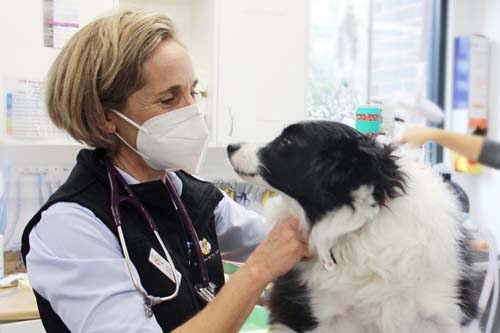
Dr Pip Wines conducting a consultation with one of her favourite dog breeds – the Border Collie!
Learn more about the benefits and usage of anti-anxiety medication for your pet.
Ask The Vet!
Author: Dr Pip Wines
1. I’ve noticed my cat has stopped grooming himself as often as he used to. He is getting older now at nine years old, could this be the reason?
There are many reasons that cats might stop grooming themselves, and if you notice this in your cat, a consultation with your vet is a good idea.
Dental disease, and a sore mouth, can mean that it is painful for your cat to maintain their grooming habits. Dental disease is common in cats and the resulting gingivitis and periodontitis mean that using their mouth becomes very painful, so they may stop grooming themselves. This problem can be solved with a scale and polish and thorough assessment of the teeth. This would require a veterinary consultation and sometimes a procedure in hospital. I always say to owners that it is better to have no teeth than sore teeth! We usually find that as soon as the dental disease has been treated, normal grooming behaviours return.
Arthritis of the joints and the spine also contribute to cats reducing their grooming habits. Often this is seen when they continue to groom the ‘easy to reach’ spots but stop in the areas that are harder to get to, such as near the tail and over the spine. An assessment by the vet can help diagnose this. We will often suggest some x-rays be taken to confirm the diagnosis. There are many medications we can use to help your furry friend feel more comfortable, including a new once a month injection. We all want our furry feline friends to be comfortable and reduced ability to groom themselves is often one sign they show us that they are starting to get sore.
The team at Turramurra Veterinary Hospital can help with this problem. Give our friendly Customer Care team a call to book in for a consultation with one our veterinarians if you are concerned.
2. My dog barks at other dogs on walks! He also pulls and strains at the leash, and I am afraid he could hurt himself. How can I help him?
This can be quite a complicated issue and often requires a multimodal approach of both a medical and behavioural assessment.
The big question is why is your dog barking? Are they excited, scared, territorial or even just conditioned that that is how they are meant to act?
We certainly have medications that can help your dog with this situation, however without the appropriate behavioural modifications the effectiveness will not noticeable.
I would suggest that to begin with, book a one-on-one behaviour appointment with Katie Bedrossian, our resident Pet Behaviour Consultant. She will then be able to liaise with one of the vets to discuss the best way forward.
3. Why does my dog keep eating grass?
Grass eating in our pets is quite a common occurrence, leaving us wondering why they do it when it appears to have little nutritional value.
Contrary to popular belief, grass eating is a common normal behaviour, and a trait passed down from their wild ancestors. Research has shown it is not ‘usually’ associated with gastrointestinal disease and grass eating in an otherwise healthy pet, and more often than not, will not result in vomiting.
There are a small number of cases, where the pet may appear unwell prior to eating grass, where this may be a significant finding. In those cases where there are other signs of illness, or if the vomiting persists, then a visit to the vet for a checkup is highly recommended.
If you have a dog that is particularly fond of grass eating and is otherwise well, make sure to avoid any chemically treated lawns and toxic plants!
We hope you have enjoyed our e-news and would love to hear from you! We are always keen to receive feedback from our clients, so feel free to send a message by emailing manager@turramurravet.com.au as we always strive to improve our service.
Thank you! Best wishes, from your local, family-owned and independent Turramurra Veterinary Hospital team.

